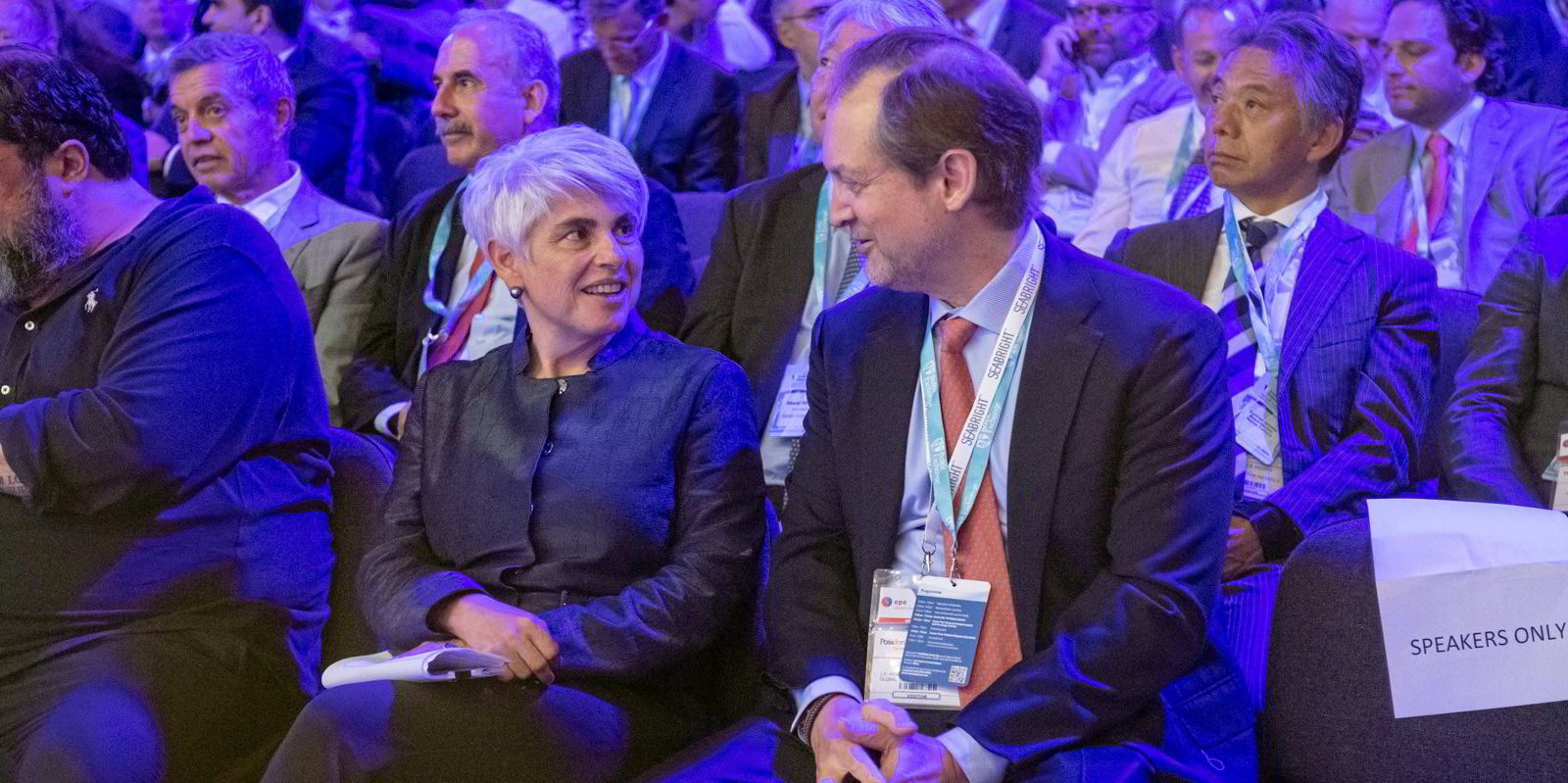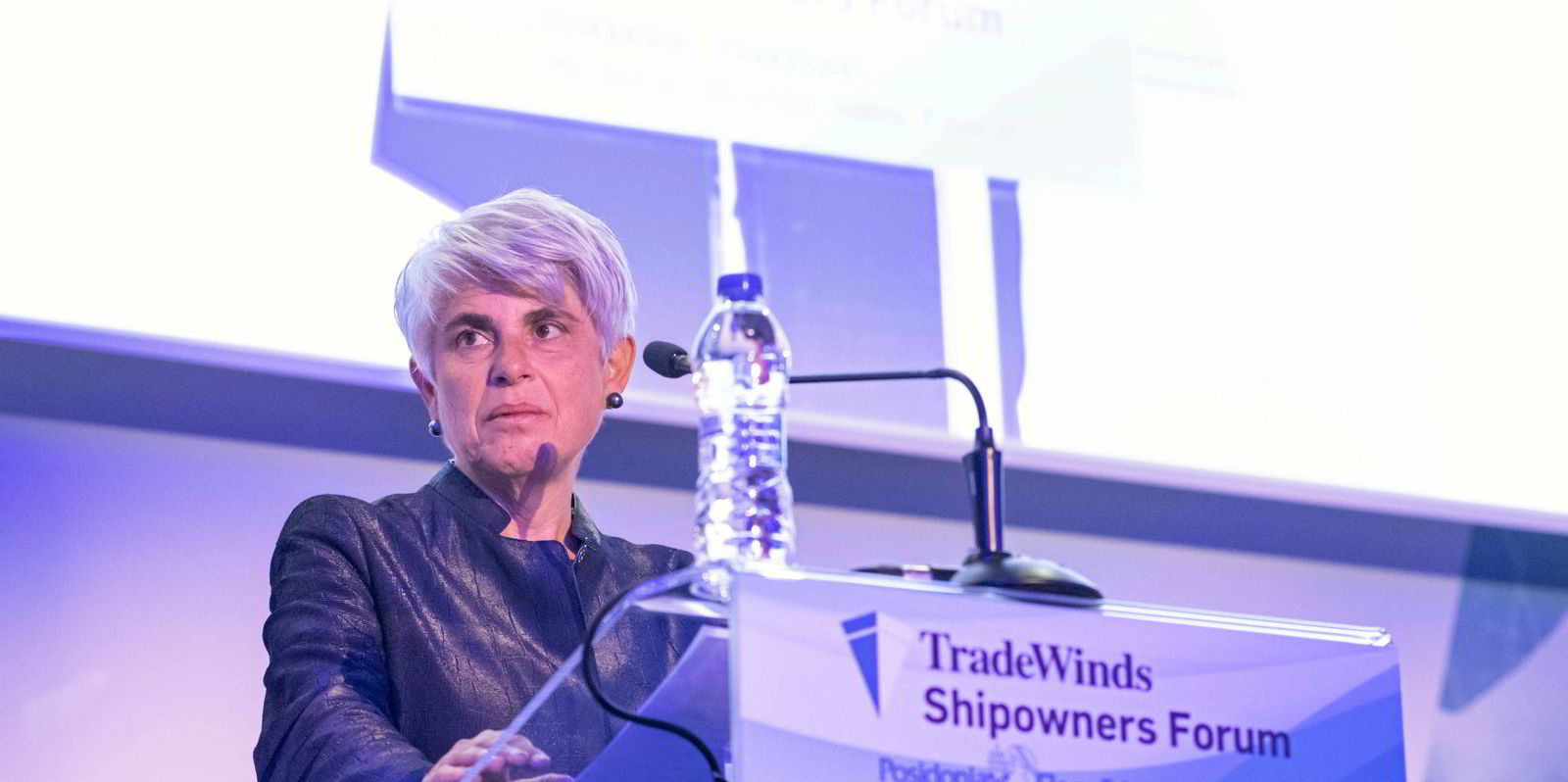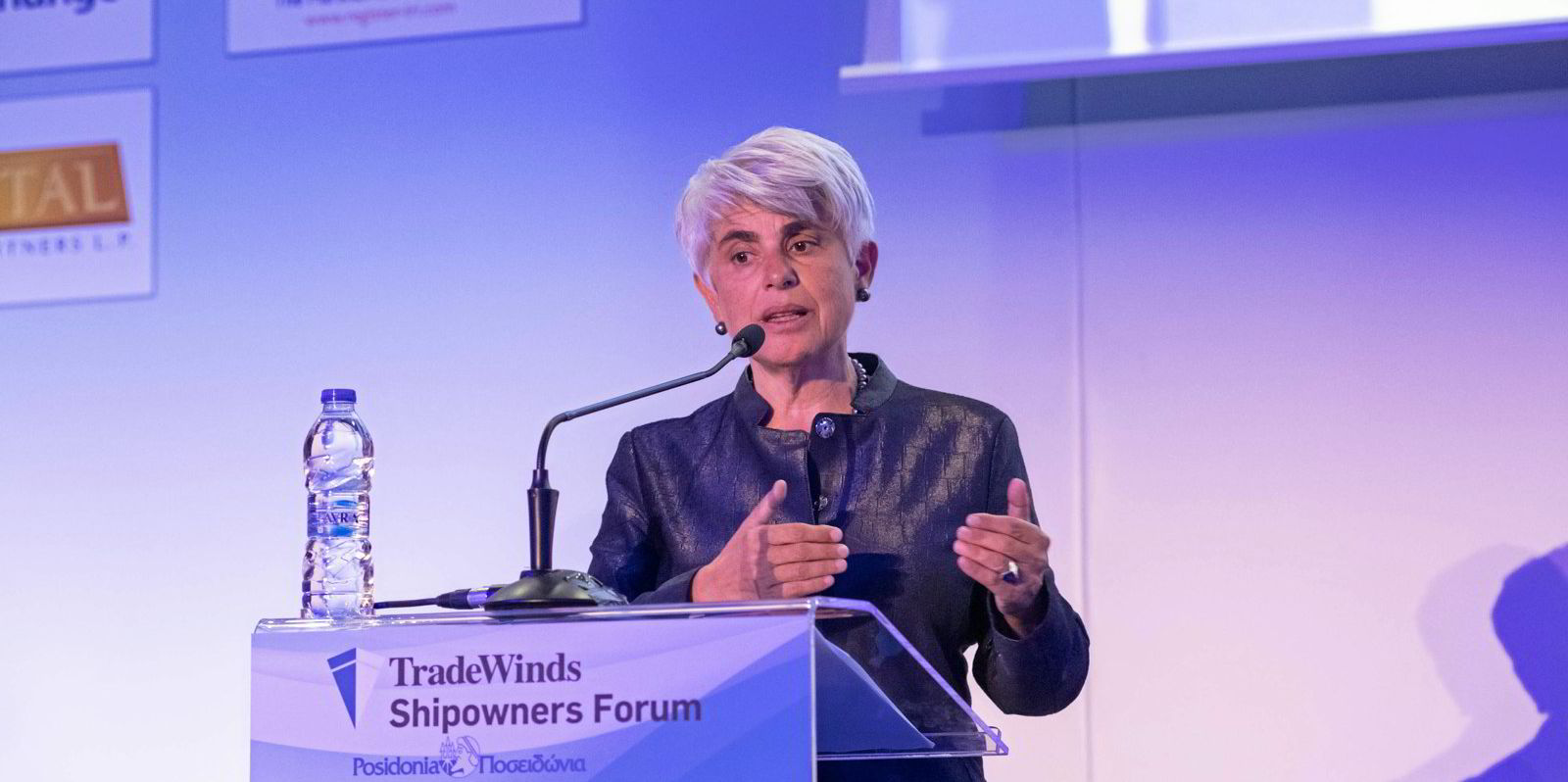Navios Maritime Partners — a diversified maritime powerhouse with nearly 200 owned and operated ships on the water and under construction — has revealed yet another newbuilding deal.
The US-listed company said in its third-quarter earnings on Thursday that it has agreed to spend $64.55m each for a quartet of 115,000-dwt, scrubber-fitted, aframax/LR2 tankers. The price includes $3.3m per ship on additional, latest fuel-efficiency features.
The acquisition contracts were made with an unrelated third party and the ships should be joining the company’s fleet within 2026.
The latest orders bring the total number of the Angeliki Frangou-led company’s newbuildings to 28. Sixteen of those are tankers, consisting of 10 aframaxes/LR2s and six MR2 product tankers. The remaining 12 are 5,300-teu container ships.
Net income for the third quarter dropped significantly, at an annual pace of 65% to $89.9m. However, that mainly reflects one-off, $144m gains booked from vessel sales in 2022 that the company did not repeat this year.
Navios Partners already announced on 26 October that it maintained its dividend steady for the 14th consecutive quarter at $0.05 per common unit.
As part of its ongoing, large-scale fleet recycling drive, which combines sales of older vessels with the acquisition of newbuildings and younger secondhand tonnage, the company confirmed on Thursday that it has sold a capesize.
In the deal that TradeWinds already reported in September based on sources, the 180,300-dwt Navios Beaufiks (built 2004) went for about $13m, possibly to Far Eastern buyers.
Navios Partners became a shipping behemoth in 2021 after absorbing then-standalone affiliates Navios Maritime Containers and Navios Maritime Acquisition.
Boxship charter renegotiations
Four of the company’s 36 boxships on the water saw their charter contracts renegotiated, down from stratospheric earning levels agreed during the Covid-19 crisis.
Navios said it lowered the $60,000 per day earned by the chartered-out, 4,730-teu Navios Jasmine (built 2008) and 4,360-teu Navios Bahamas (built 2010). In exchange, the two vessels’ charterers agreed to extend their employment by more than two years.
Henceforth, the Navios Jasmine and Navios Bahamas will be earning $48,000 per day until spring 2025 and $22,500 per day from then on, until mid-2027.
In another related development, the company agreed to terminate highly lucrative, ongoing charter parties for the 2,741-teu Protostar N (built 2007) and the 3,450-teu Navios Spring (built 2007).
According to the company’s latest annual filings, the Protostar N was earning $46,556 per day under a charter-out deal valid through to October 2025. The Navios Spring was employed until May 2025 at $58,500 per day.
Navios Partners has now obtained a prepayment of $52.5m to release the two ships from these contracts and assumed their sub-charter agreements at $11,700 per day and $19,744 per day, respectively.
“Containers are in a weak moment, so this kind of transaction happens, counterparties will ask for amendments,” Frangou told analysts in a conference call.
“Of course, we only do things that make sense for Navios, so we’re very careful about that.
“We do not see this happening on others,” she added, pointing out that one case concerns a counterparty that left the sector and had to “resolve its logistics”.
Into South American transshipment
Frangou did not make any comments on her move to take private Navios Southern American Logistics — an affiliate of Navios Partners that was separately listed in the US.
In the only related item, Navios Partners said in the earnings statement that it has chartered out one of its vessels to the private venture for five years.
Under the move, which was described as Navios Partners’ entry into the transshipment business, the 58,800-dwt Navios Vega (built 2009) was converted into a ship-to-ship transhipper vessel on behalf of Navios South American Logistics at $25,800 net per day.
“This transaction was negotiated with, and unanimously approved by, the conflicts committee of Navios Partners,” the company said in its earnings release.
In more general comments, Frangou expressed worries about the state of geopolitics.
“The wars in Ukraine and Israel, coupled with inflation and a transition in the interest rate environment, have contributed to making this one of the most dangerous times in memory,” she told the call.
“Despite these factors, the shipping market is healthy and Navios has performed well.
“We continue to focus on things that we can control,” Frangou said, citing as examples the reduction of leverage, the development of a more fuel-efficient fleet and the expansion into new, promising areas, such as recent tanker deals it concluded with various oil majors.





